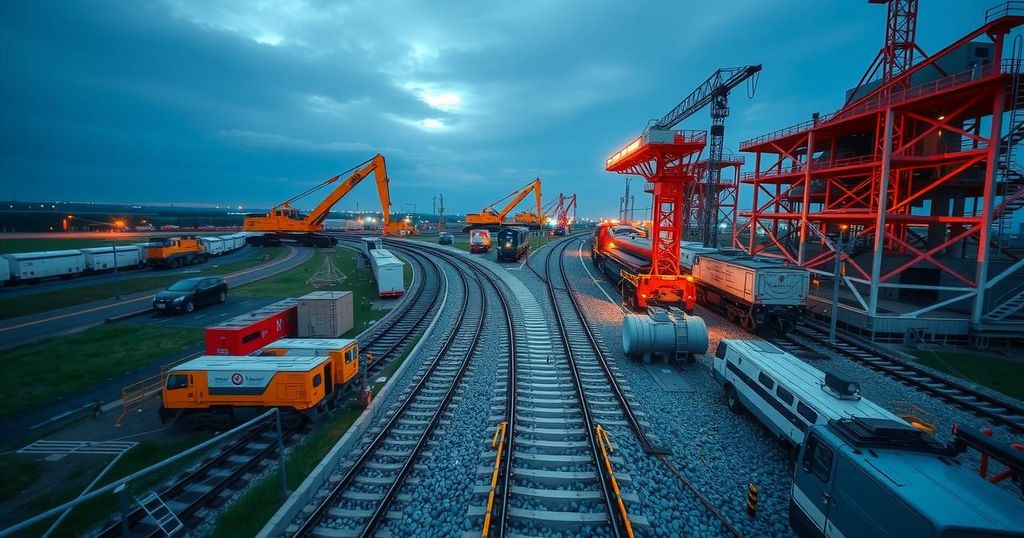Politics
ASIA, CHINA, COOPERATION, EBRD, EKATERINA MIROSHNIK, ENERGY, EUROPEAN BANK FOR RECONSTRUCTION AND DEVELOPMENT, EXPORT, INDUSTRIAL DEVELOPMENT, INVESTMENT, KYRGYZ, KYRGYZS, KYRGYZSTAN, MAMANBIY OMAROV, MEXICO, MINISTRY OF TRANSPORT OF THE REPUBLIC OF UZBEKISTAN, NATIONAL BANK OF THE, NATIONAL BANK OF THE KYRGYZ REPUBLIC, NORTH AMERICA, SAD, SADYR JAPAROV, SOLAR POWER, UZBEKISTAN
Clara Montgomery
EBRD Considers Co-Financing for China-Kyrgyzstan-Uzbekistan Railway Project
The EBRD is evaluating the co-financing of the China-Kyrgyzstan-Uzbekistan railway project, with discussions led by transport officials from Uzbekistan and the EBRD. The project involves a 454-kilometer railway, with Kyrgyzstan investing significantly over the next few years. The project agreement was formalized in mid-2024 and construction began in October 2024.
The European Bank for Reconstruction and Development (EBRD) is assessing the potential for co-financing the construction of the China-Kyrgyzstan-Uzbekistan railway project. This discussion was highlighted in a recent meeting between Mamanbiy Omarov, the First Deputy Minister of Transport of Uzbekistan, and Ekaterina Miroshnik, the EBRD Director for Eurasian Infrastructure. They deliberated on the collaborative financing opportunities for the railway project, which encompasses a 454-kilometer route agreed upon by Uzbekistan, Kyrgyzstan, and China in September 2022. According to the agreement, equity in the project will be shared as follows: 51 percent will be owned by China, while Kyrgyzstan and Uzbekistan each will hold 24.5 percent. Kyrgyzstan is committed to investing 11 billion soms in the railway construction, with allocations from the state budget for 2025 to 2027 totaling approximately $131.39 million, broken down to about $28.67 million in 2025, $50.87 million in 2026, and $51.85 million in 2027. The agreement to facilitate this significant infrastructure project was formalized on June 6, 2024, and subsequently ratified by the Parliament on June 19, 2024, with President Sadyr Japarov endorsing it on June 27, 2024. The construction phase commenced in October 2024.
The proposed China-Kyrgyzstan-Uzbekistan railway project aims to enhance transportation and trade connectivity across the region. This initiative reflects a growing trend of infrastructure investment in Central Asia, supported by major financial institutions such as the EBRD. The project is also pivotal for Kyrgyzstan, as it plans significant financial commitments to further its development goals. Enhancing railway infrastructure is essential for boosting regional trade and economic prosperity in a post-pandemic recovery phase.
In conclusion, the China-Kyrgyzstan-Uzbekistan railway project illustrates an essential step towards strengthening regional infrastructure and economic cooperation. With financial backing from both the EBRD and the commitment of Kyrgyzstan and Uzbekistan, it anticipates transformative impacts on trade routes and economic integration. This endeavor not only propels infrastructure development in the region but also signifies collaborative international efforts to foster economic growth.
Original Source: 24.kg






Post Comment